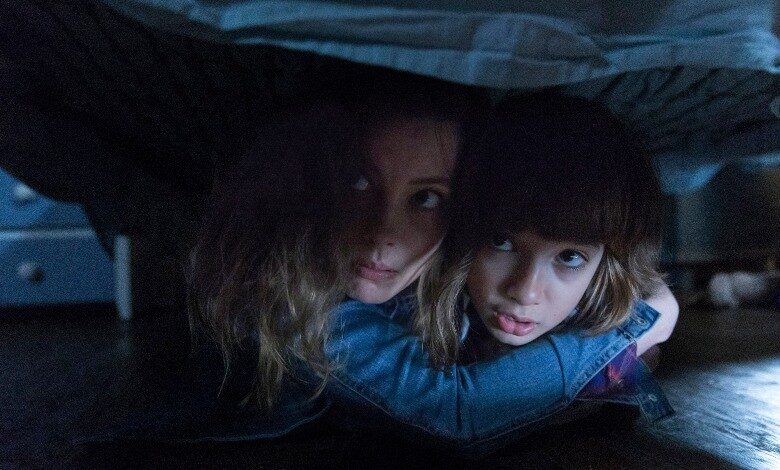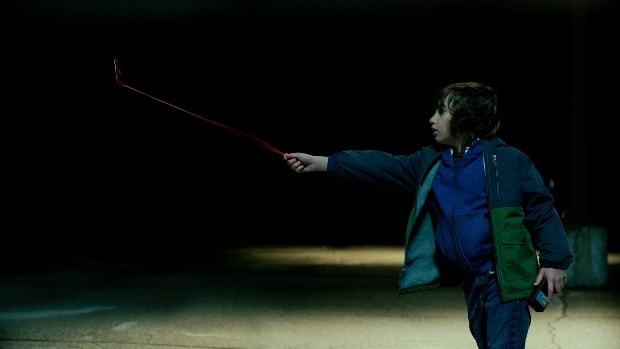
There’s finally a new book to put on the cinematic shelf next to “The Babadook.”
Naturally, it’s a cyber-edition, one found on tablets and smart phones but mimicking that movie’s literary frights.
“Come Play” follows an Autistic lad who discovers a creepy children’s book lurking on his tablet. That uncorks a polished, if meandering shocker that’s clean enough for the teen set but barely memorable. Still, the film ends with a double whammy – an unexpected shock that points to a mother’s unconditional love.
That’s not your average horror movie takeaway, but in most other respects “Come Play” adheres to the standard genre tropes.
Wide-eyed Oliver (Azhy Robertson) struggles to make friends at school but feels far more secure at home. He is Autistic and cannot speak, meaning he relies on tech gadgets to communicate with others. His doting Ma (Gillian Jacobs, “Community”) showers him with love while the boy’s father (John Gallagher Jr.) is busy working and playing with the boy.
That tension, finely choreographed at first but quickly abandoned, suggests the marriage is in trouble. That seems less important once poor Oliver starts flipping the cyber-pages of a book that appears on his tablet. The story follows an emaciated ghoul named Larry (mental note: The least scary name for a movie monster … ever) desperate to make a friend.
Larry thinks Oliver can be his buddy, much to his parents’ chagrin. Always listen to your parents, kids.

“Come Play” strikes a creepy note early in the film but can’t quite let it go. The lights flicker and burn out whenever Larry approaches. Writer/director Jacob Chase repeats that scare tactic to a laughable degree, part of the film’s intellectually lazy mapping.
Yes, it’s another horror movie where characters either behave in a foolish fashion or piece clues together in record time, all depending on what the script demands at a given moment. Your eyes will roll, and roll, when a trio of school bullies drops by Oliver’s house for a play date.
Come on … really?
While the ’80s gave us horror films marked by frighteningly bad performances, “Come Play” packs strong turns all around. Young Robertson holds it all together, capturing a child’s curiosity as well as his need to connect with someone, anyone, to break his loneliness. Still, the genre tropes that regularly creep in make the chills easy to spot, if not predict in their entirety.
The final act offers modest rewards, but it’s the two grace notes that cap the story that catch us flat-footed. No spoilers here, but the one-two punch is both refreshing and rare. If only the rest of the film packed such sneaky surprises.
HiT or Miss: “Come Play” offers PG:13-level shocks, fine performances and nothing scary enough to remember once the end credits roll.
